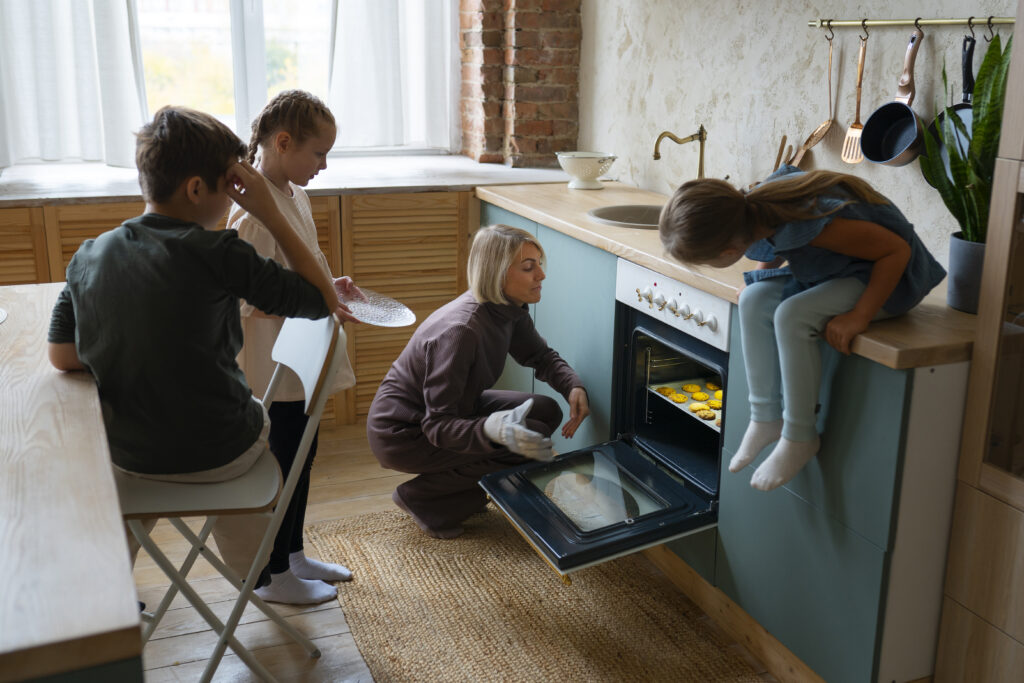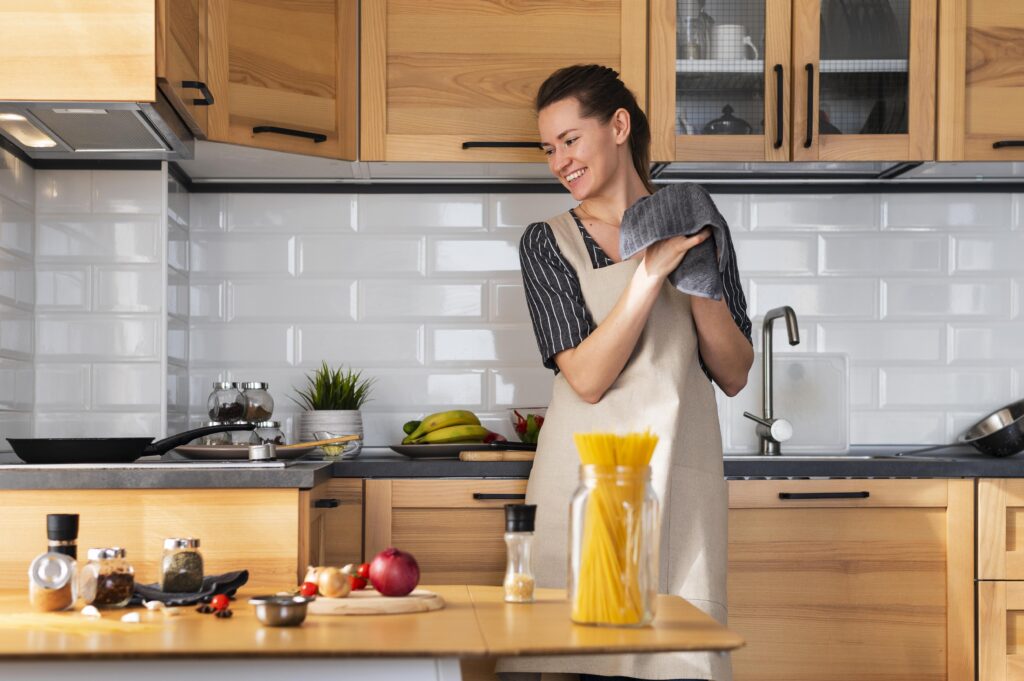Preventing common kitchen accidents is crucial for your safety and the well-being of those in your home. Here are some tips to help you avoid accidents in the kitchen:

- Stay Alert and Focused:
- Pay attention to what you’re doing in the kitchen. Avoid distractions like watching TV or using your phone while handling sharp objects or hot surfaces.
- Properly Store Knives:
- Use a knife block, magnetic strip, or knife drawer inserts to store knives safely. Never leave them loose in a drawer.
- Keep the Kitchen Clean:
- Wipe up spills promptly to prevent slips. Ensure the kitchen floor is dry and free of clutter.
- Use Cutting Boards:
- Always use a cutting board when chopping or slicing. Opt for a sturdy, non-slip cutting board to prevent the knife from slipping.
- Learn Knife Safety:
- Use the right knife for the task at hand.
- Curl your fingers under when chopping to protect them.
- Keep knives sharp to prevent them from slipping.
- Handle Hot Objects Safely:
- Use oven mitts or pot holders when handling hot pots, pans, and oven dishes.
- Be cautious when opening the oven or microwave to avoid steam burns.
- Avoid Grease Fires:
- Keep a close eye on frying pans and never leave them unattended.
- In case of a grease fire, smother it with a lid or fire extinguisher—never use water.
- Use Caution with Electrical Appliances:
- Keep cords away from hot surfaces.
- Unplug appliances when not in use.
- Don’t overload electrical outlets.
- Prevent Cross-Contamination:
- Wash your hands frequently when handling different types of foods.
- Use separate cutting boards for meat, poultry, and vegetables.
- Clean surfaces and utensils that come into contact with raw meat thoroughly.
- Store Chemicals Safely:
- Keep cleaning supplies and chemicals out of reach of children and away from food.
- Follow the instructions on cleaning products carefully.
- Secure Heavy Items:
- Ensure heavy items, like pots and pans, are stored on lower shelves or in lower cabinets to prevent them from falling.
- Use Caution with Hot Liquids:
- When using a blender, food processor, or hand blender with hot liquids, make sure the lid is secure, and start on a low setting to avoid splattering.
- Childproof the Kitchen:
- Install safety locks on cabinets and drawers to prevent young children from accessing dangerous items.
- Keep small objects and choking hazards out of reach.
- Be Mindful of Food Allergies:
- If you or someone in your household has food allergies, be vigilant about reading food labels and preventing cross-contamination.
- Properly Dispose of Kitchen Waste:
- Use trash bags with secure ties to prevent leaks and odors.
- If you have a garbage disposal, use it according to the manufacturer’s instructions.
- Stay Organized:
- Keep your kitchen well-organized, so you don’t have to rush or fumble for items while cooking.
- Educate Yourself:
- Learn about food safety guidelines and best practices for kitchen hygiene.
- Use Child-Safe Cookware:
- If you have young children, consider using cookware with cool-touch handles to reduce the risk of burns.
- Take Your Time:
- Rushing in the kitchen can lead to accidents. Give yourself adequate time to prepare and cook meals.
Remember that accidents can happen despite taking precautions. It’s essential to know basic first aid and have a first aid kit readily available in your kitchen. If a serious accident does occur, seek medical attention promptly.


